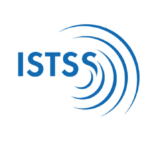
Verity Wainwright explores a qualitative study from Norway, which looks into prisoners understanding of mental health and the prison environment.
[read the full story...]
Verity Wainwright explores a qualitative study from Norway, which looks into prisoners understanding of mental health and the prison environment.
[read the full story...]
Shuichi Suetani and Gaj Panagoda explore the World Federation of ADHD International Consensus Statement published in 2021, which contains “208 evidence-based conclusions about attention-deficit hyperactivity disorder.
[read the full story...]
Aneta Zarska blogs about a qualitative research study from Australia that outlines what trauma-informed care should look like, by asking people with experience of mental health difficulties.
[read the full story...]
Douglas Badenoch appraises an up-to-date systematic review and decision pathway for the drug treatment of ADHD symptoms in young people with autism spectrum disorder.
Follow #CAMHScampfire on Twitter at 5pm BST on Tuesday 25th May for an online journal club discussing this paper. Or sign up now to join the free webinar hosted by ACAMH.
[read the full story...]
Cara Richardson summarises a qualitative photovoice study, which finds that some men who died by suicide did seek help before their death, but the help given was often ineffective.
[read the full story...]
Alice Grishkov and Derek Tracy explore a recent paper, which finds that generalised anxiety disorder is on the rise in the UK, especially in young women.
[read the full story...]
In her debut blog, Poppy Ellis Logan summarises a longitudinal study which finds rates of ADHD prescription increased in Ireland between 2005 and 2015.
[read the full story...]
Rachel Symons summarises a qualitative study that explores the relationship between autism and social anxiety in male adults.
[read the full story...]
Dolly Sud writes her debut elf blog on a recent retrospective analysis, which compares dose changes of risperidone and aripiprazole with patients’ individual genotype.
[read the full story...]
In Dr David Trickey’s debut blog for Mental Elf, he comments on the new ISTSS treatment guidelines for children and young people with post traumatic stress disorder.
[read the full story...]